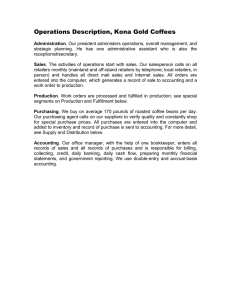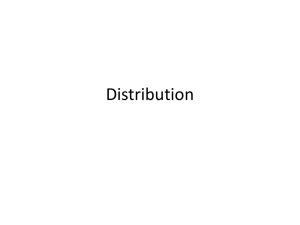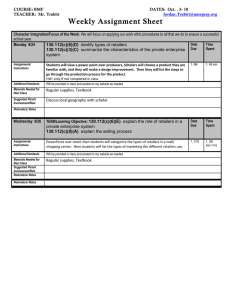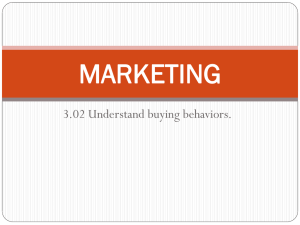Proof of purchase
advertisement
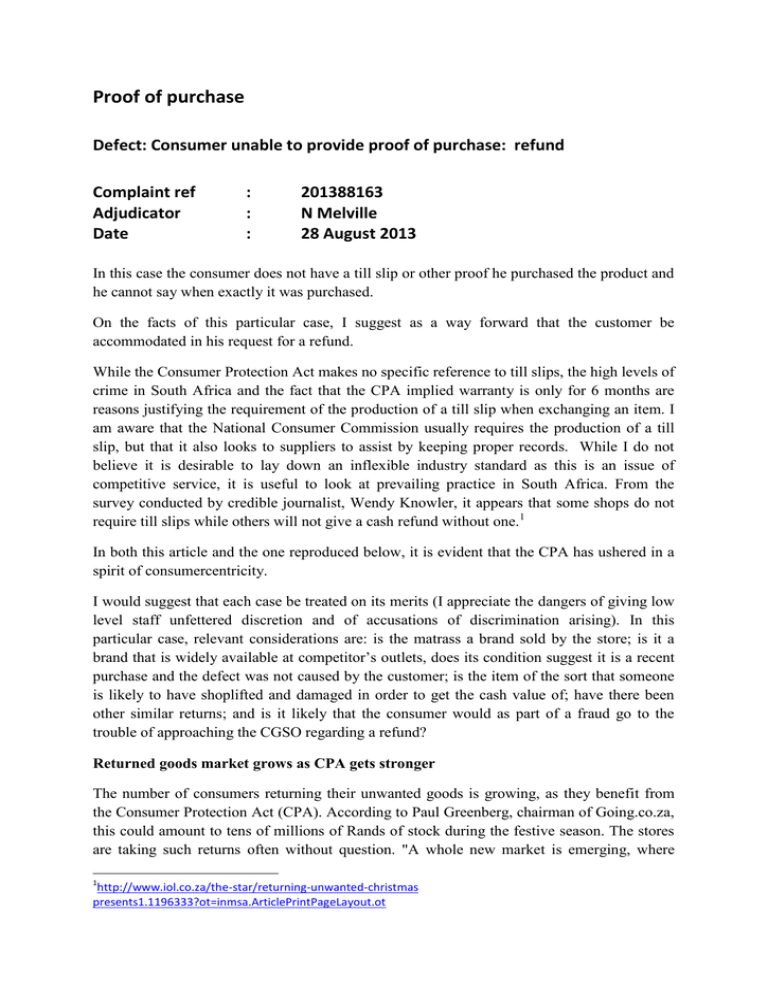
Proof of purchase Defect: Consumer unable to provide proof of purchase: refund Complaint ref Adjudicator Date : : : 201388163 N Melville 28 August 2013 In this case the consumer does not have a till slip or other proof he purchased the product and he cannot say when exactly it was purchased. On the facts of this particular case, I suggest as a way forward that the customer be accommodated in his request for a refund. While the Consumer Protection Act makes no specific reference to till slips, the high levels of crime in South Africa and the fact that the CPA implied warranty is only for 6 months are reasons justifying the requirement of the production of a till slip when exchanging an item. I am aware that the National Consumer Commission usually requires the production of a till slip, but that it also looks to suppliers to assist by keeping proper records. While I do not believe it is desirable to lay down an inflexible industry standard as this is an issue of competitive service, it is useful to look at prevailing practice in South Africa. From the survey conducted by credible journalist, Wendy Knowler, it appears that some shops do not require till slips while others will not give a cash refund without one.1 In both this article and the one reproduced below, it is evident that the CPA has ushered in a spirit of consumercentricity. I would suggest that each case be treated on its merits (I appreciate the dangers of giving low level staff unfettered discretion and of accusations of discrimination arising). In this particular case, relevant considerations are: is the matrass a brand sold by the store; is it a brand that is widely available at competitor’s outlets, does its condition suggest it is a recent purchase and the defect was not caused by the customer; is the item of the sort that someone is likely to have shoplifted and damaged in order to get the cash value of; have there been other similar returns; and is it likely that the consumer would as part of a fraud go to the trouble of approaching the CGSO regarding a refund? Returned goods market grows as CPA gets stronger The number of consumers returning their unwanted goods is growing, as they benefit from the Consumer Protection Act (CPA). According to Paul Greenberg, chairman of Going.co.za, this could amount to tens of millions of Rands of stock during the festive season. The stores are taking such returns often without question. "A whole new market is emerging, where 1 http://www.iol.co.za/the-star/returning-unwanted-christmas presents1.1196333?ot=inmsa.ArticlePrintPageLayout.ot small businesses that are looking for cheap products to resell will take these returned goods and sell them to buyers who cannot afford to pay full retail prices," he says. "There are a number of sections in the CPA that allow consumers to return goods to suppliers and there are many reasons why consumers are returning goods." Many of the larger retailers will take products back and pay refunds whatever the reason and usually the right to a refund depends on the customer's reason for returning the product. "Some shops will take back gifts without question, particularly if it is their own brand of product, without asking to see a receipt or other proof of purchase." Furthermore, the growth of online retail in South Africa is also growing the returned goods market because of the CPS cooling off period and a customer-centric culture, where retailers accept that people change their mind when they physically see the product they bought online. Returns are often a good thing for a retailer looking to grow customer loyalty and cross-sell to other purchases. South African born Greenberg founded on-line retailer DealsDirect and is currently chairman of the National Online Retailers Association in Australia. He recently started the company together with black empowerment group Amabubesi, to buy returns from retailers looking to clear their shelves for new product, for resale to smaller retailers or wholesale online. It operates warehouses in Johannesburg and Cape Town and is hiring individuals to handle the influx of returns expected to flood into the company's space over the next four months. Typically, business begins to pick up in November and December when small, independent entrepreneurs and informal traders stock up for the holiday shopping season. As post season returns start to come in, inventory rises sharply, giving buyers more of a selection and allowing them to build inventory while it is available. Its customers range from minor wholesalers, who work primarily off websites such as Gumtree, to suburban discount retailers. These may not have access to volume discount goods that larger retailers do. "We provide a liquid marketplace and sell product that allows small businesses to make profits. It's primarily the type of inventory that traditional retailers don't want to deal with and that's where we come in and it has already stated to get busy," he concludes.2 2 19 Aug 2013 16:14] www.bizcommunity.com.
